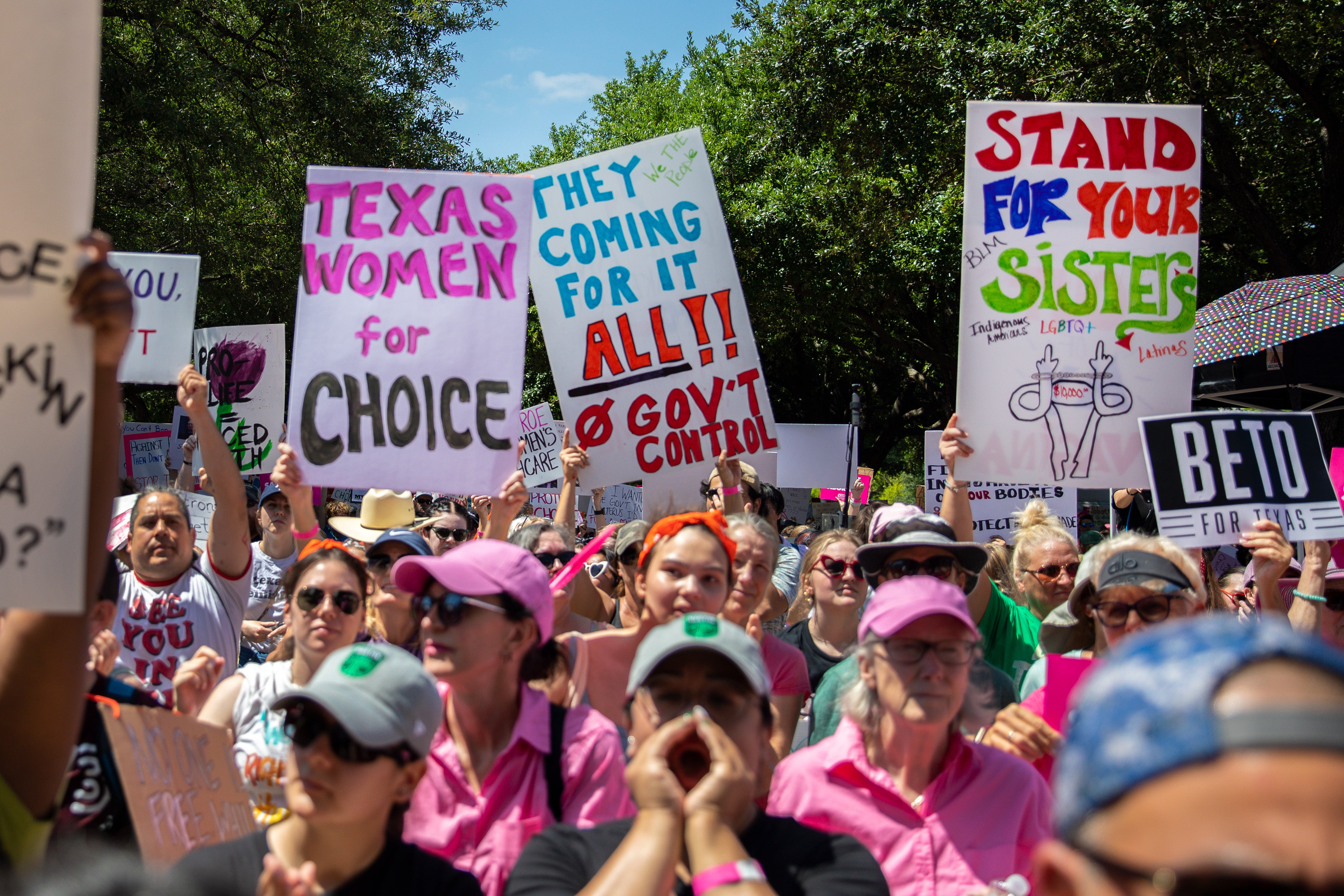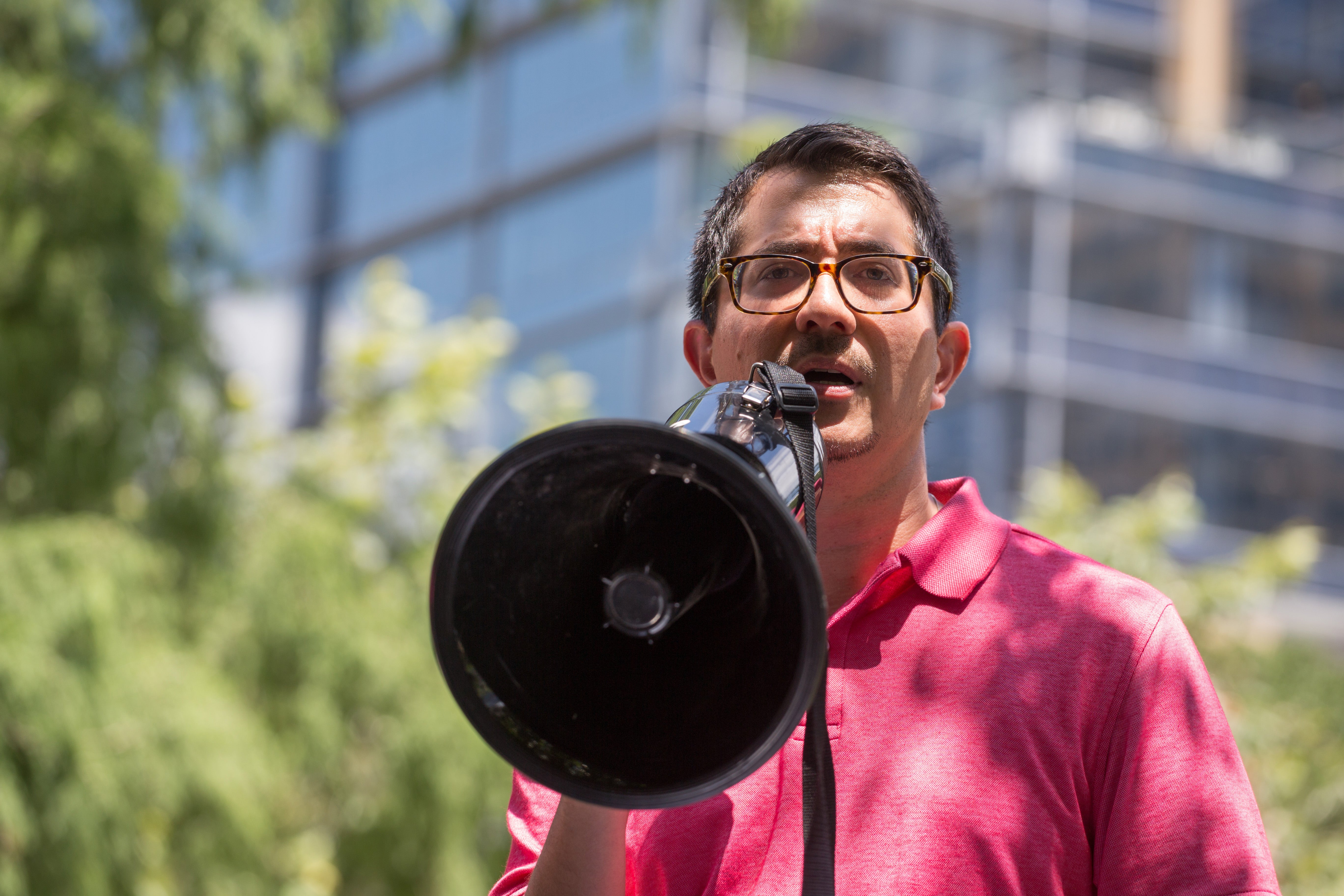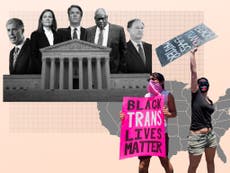Why these prosecutors are refusing to enforce criminal anti-abortion laws in their states
‘Trigger’ bans in more than a dozen states will quickly or immediately outlaw abortion without Roe v Wade protections. It will be up to the discretion of district attorneys and law enforcement whether providers will be criminally charged, Alex Woodward reports


Your support helps us to tell the story
From reproductive rights to climate change to Big Tech, The Independent is on the ground when the story is developing. Whether it's investigating the financials of Elon Musk's pro-Trump PAC or producing our latest documentary, 'The A Word', which shines a light on the American women fighting for reproductive rights, we know how important it is to parse out the facts from the messaging.
At such a critical moment in US history, we need reporters on the ground. Your donation allows us to keep sending journalists to speak to both sides of the story.
The Independent is trusted by Americans across the entire political spectrum. And unlike many other quality news outlets, we choose not to lock Americans out of our reporting and analysis with paywalls. We believe quality journalism should be available to everyone, paid for by those who can afford it.
Your support makes all the difference.Without federal protections for the right to an abortion, legal access to abortion care in the US will vary not just on a state level but county by county, redrawing the nation’s map for bodily autonomy protections.
Severe restrictions on abortion access – and the enforcement of laws in states with criminal abortion bans, with prison sentences and heavy fines for providers and others who “aid and abet” an abortion, in some cases – will largely depend on where one lives.
The criminalisation of patient care will be up to the discretion of local law enforcement, creating a “two-tiered system where people, women and families who have access to resources could continue to have access to abortion services, and where working-class people, women and families would be denied those services,” said Jose Garza, the district attorney of Travis County, Texas.
“Those widening fissures threaten our public safety, they threaten – quite frankly – the foundation of our democracy,” he told The Independent. “To widen those fissures even further would be a very, very dark moment for our democracy.”
Sixteen states and Washington DC have laws that protect the right to abortion. But so-called “trigger” laws in more than a dozen states will quickly or immediately criminalise abortion care after the US Supreme Court overturned the 1973 ruling in Roe v Wade, which affirmed constitutional protections for the right to abortion care.
A decision from the court in the case of Dobbs v Jackson Women’s Health Organization istruck down Roe precedent and its affirming ruling in 1992’s Planned Parenthood v Casey, marking a stark reversal that could force women and girls to carry pregnancies to term, or seek abortion care in states or countries where it is protected, leading to far-reaching and potentially life-threatening consequences for millions of Americans.
A state law in effect since late last year in Texas bans abortion at six weeks of pregnancy, before many people know they are pregnant, with no exceptions for rape and incest. Enforcement relies on private parties through civil suits against people who “aid and abet” abortion patients.
The state also is among 13 with “trigger” laws in place to outlaw abortion care, and among nine states with older unenforced, unconstitutional laws banning abortion that have remained on the books despite the Roe ruling.
The Independent asked the chief prosecutors in more than a dozen counties and parishes where their respective states’ anti-abortion laws are set to take effect to ask how – or if – they will go about prosecuting such cases, including whether they will issue subpoenas for personal digital data to prosecute them.
A statement signed by nearly 100 prosecutors and officials from across the US after the Supreme Court’s ruling pledging support to “refrain from prosecuting those who seek, provide, or support abortions.”
Michigan Attorney General Dana Nessel also made a separate announcement that her office “will not prosecute women, girls, or their doctors for seeking or providing abortion services.” Other pledges came from prosecutors from Los Angeles to Philadelphia and Baltimore.
Mr Garza is among several district attorneys in Texas who told The Independent that they will not prosecute people seeking abortion care or who provide abortions, should state laws criminalising care go into effect without Roe.
He also joined a statement with the district attorneys representing parts of Dallas, Houston, San Antonio and Corpus Christi who refuse to prosecute providers and condemn state-level efforts to “criminalise personal healthcare decisions”.
The prosecutors warned that anti-abortion laws “have the potential to fuel attempts by some to criminalise patients, medical professionals, healthcare providers, and others who assist in these medical procedures.”
Kim Ogg, the district attorney of Harrison County, Texas, the third most populous county in the US and home to nearly 5 million people, said in a statement that she is “concerned that the justices of the nation’s highest court may overturn long-standing precedent of a woman’s right to make decisions about her own healthcare, specifically her right to privacy to choose abortion”.
Their statements followed the shocking arrest of a 26-year-old woman in the Rio Grande Valley in April who was charged with murder for her alleged abortion, charges that were ultimately dropped, but have raised critical questions about the information health providers share with law enforcement and the lengths to which law enforcement agencies could pursue cases involving abortion despite no grounds to do so.
Legal organisation National Advocates for Pregnant Women said her “arrest proves the true intent of those who are fighting to overturn Roe: the surveillance, control, and criminalisation of pregnant people”.
A recent state law in Louisiana – which has some of the most severe anti-abortion laws in the US – effectively bans all abortion care beyond the moment of “fertilization and implantation,” with no exception for rape or incest. The state already has a “trigger” ban in place and several obstacles to abortion care, including a 24-hour waiting period and mandatory ultrasounds and state-directed counseling.
The state’s latest measure clarifies dozens of state laws governing abortion care by imposing a prison sentence of up to 10 years for abortion providers or anyone found guilty of performing an abortion, along with no less than $10,000 in fines. An abortion performed later in the pregnancy could result in a 15-year prison sentence as well as a minimum $20,000 fine, if found guilty.
New Orleans District Attorney Jason Williams told The Independent that his office is “focused on pursuing accountability and justice for the most serious, violent crimes committed against our people.
“We cannot and will not shift the priority from tackling senseless shootings and rapes to investigating the choices women make with regard to their own bodies,” he said.
Other district attorneys offices throughout Louisiana and in neighbouring Mississippi did not respond to The Independent’s request for comment.
We cannot and will not shift the priority from tackling senseless shootings and rapes to investigating the choices women make with regard to their own bodies.
Following the passage of the sweeping anti-abortion law in Texas, people seeking abortion found refuge across state lines in Oklahoma, where providers fielded dozens of calls each hour for appointments.
In the weeks that followed, Oklahoma’s Republican Governor Kevin Stitt signed a series of bills criminalising all abortions, including in cases of rape or incest, with providers facing up to 10 years in prison.
When asked whether his office will pursue anti-abortion cases under the law, Steve Kunzweiler, the Republican district attorney in Tulsa County, told The Independent that “it is inappropriate to engage in a speculative discussion on alleged facts which have not been presented to our office for review”.
“We will continue to adhere to the [principles] and standards upon which our office is obligated to follow,” he said.

A law in Arizona – which recently implemented a ban on abortions after 15 weeks of pregnancy, mirroring the Mississippi law at the centre of Supreme Court case – would make abortion care illegal without Roe protections.
Rachel Mitchell, the district attorney for Maricopa County, Arizona, where six of the state’s nine abortion clinics are located, told The Appeal she will “follow the law” when asked whether her offfice will pursue prosecutions against abortion providers.
She did not respond to the outlet when asked if she would use the fetal personhood law to prosecute people who provide or seek abortions.
Meanwhile, in neighbouring Pima County, where two clinics are located, county attorney Laura Conover said her office will “do everything in our power to ensure that no person seeking or assisting in an abortion will spend a night in jail”.
The opposite approaches between the two chief prosecutors reflect how a patient traveling between county lines within the same state could face enormous disparities for abortion care – along with their providers and family members or others who may help them seek care – and whether they will face legal consequences for doing so.
Tennessee’s “trigger” law makes abortion care a felony in nearly all cases, to be effective within 30 days after Roe is overturned.
Nashville’s Democratic District Attorney Glenn Funk said in a statement that his office “will not prosecute any woman who chooses to have a medical procedure to terminate a pregnancy or any medical doctor who performs this procedure at the request of their patient.”
“I am appalled that this assault on a woman’s personal health decisions is in jeopardy,” he said after the publication of the leaked draft.
Amy Weirich, the Republican district attorney for Tennessee’s Shelby County, the state’s largest, told The Independent that her office “does not deal in hypothetical situations. We deal in facts and truth. Any statement on unknown variables is irresponsible and political grandstanding.”
Last year, the state’s Republican-controlled legislature passed a law allowing the state’s attorney general to intervene in local cases, including those involving abortion, allowing the appointment of a temporary prosecutor when a district attorney has “peremptorily and categorically” refused to press charges.
The National Right to Life Committee – the nation’s largest anti-abortion organisation – has drafted sweeping model legislation for states to adopt, which would, among other things, criminalise abortion care and grant state attorneys general to take on abortion cases when local prosecutors refuse.
James Bopp Jr, general counsel for National Right to Life, said in a statement that the states must “employ a robust enforcement regime” without overarching federal protections.
Abortion rights advocates and prosecutors warn that broad criminal laws targeting abortion care could open up patients and their physicians to invasive subpoenas of their personal data, including period-tracking apps and search engine results for abortion clinics.
“In order to prosecute those kinds of cases, it would require prosecutors and law enforcement to dig deep into the personal medical history of people who are seeking care, and I think that is antithetical to our public safety,” Mr Garza told The Independent.
In a recent meeting with legal experts about threats to privacy protections in the wake of the Supreme Court’s ruling, Vice President Kamala Harris said she fears the “vulnerability of women who are using menstrual-tracking apps, those who use a search engine to find certain locations or certain help … and how vulnerable those searches will be to bad actors attempting to track their history, much less any government forces that may be interested in investigating that for whatever purpose.”
Several pieces of proposed legislation in Congress would also block intimate data gathered on smartphones – including, more broadly, location data – from getting into the hands of the companies that collect them and the companies that want to buy them.
A bill from California Congresswoman Sara Jacobs would strictly limit the sexual health data that companies can collect, retain and disclose, while a sweeping proposal from Senator Elizabeth Warren would ban data brokers from selling or transferring location and health data.
Anti-abortion activists have already relied on surveillance methods to track patients and providers, using methods like license-plate tracking and cameras outside clinics. At least one state also has reviewed sensitive patient information gathered from clinics; in 2019, Missouri’s top health official testified that the state mined detailed personal information from Planned Parenthood – including reviewing patients’ menstrual cycles, medical identification numbers, dates of procedures and the gestational ages of fetuses. Patient names were not included.
A group of Democratic senators recently wrote to data collection firms that offered reams of data related to possible patients at Planned Parenthood clinics – data that lawmakers have warned could end up in the possession of people taking civil action against providers and patients.
“These and other practices targeting women seeking necessary health care services are almost certain to escalate if Roe v Wade is gutted and abortion is criminalised instantly in states across the nation,” the senators wrote to data firms. “Under these circumstances, [your company’s] decision to sell data that allowed any buying customer to determine the locations of people seeking abortion services was simply unconscionable, risking the safety and security of women everywhere.”
A group of senators also wrote to Google’s chief executive officer Sundar Pichai, urging the company to “stop unnecessarily collecting and retaining customer location data, to prevent that information from being used by right-wing prosecutors to identify people who have obtained abortions.”
Law enforcement routinely has relied on location data for criminal investigations; in 2020, the company received nearly 12,000 requests from law enforcement agencies seeking so-called “geofence” data that reveals location data at a given time, according to reports published by Google and reviewed by senators.
“It doesn’t make sense to spend our time and energy thinking about how one might do that,” Mr Garza told The Independent. “But I think those fears and concerns are incredibly legitimate … I think the implications for that, for law enforcement, using their authority, in that way would deeply undermine core democratic principles … and I think that that would have serious and dangerous implications for our democracy,” he said.
This story was orgiginally published on 20 June and was updated in the wake of the Supreme Court’s ruling to overturn Roe v Wade on 24 June.





Join our commenting forum
Join thought-provoking conversations, follow other Independent readers and see their replies
Comments